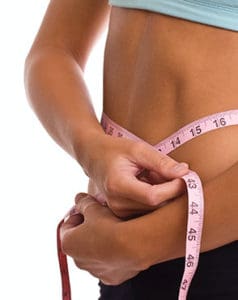How to eat healthy on the go
Ideally, of course, you should always eat a healthy, home-cooked meal at the dinner table – eating quietly and slowly, savouring every bite.
Unfortunately.
We often lose track of time – finishing the last work email, forgetting to eat and rushing to pick up the kids from school or the kindergarten to take them to some class, training, etc.
Sometimes we have the foresight to take a protein bar, an apple or some nuts to work and satisfy our hunger with them.
Or
We run into a fast-food drive-in on the way and hurriedly shove something not-so-healthy into our mouths.
The truth is that life is not perfect for anyone. But we do need to eat -preferably in a balanced and healthy way.
But.
Eating healthy when you’re out – on the go, on holiday, at a party … is a challenge. Especially in summer.
So, let’s talk about that – how to eat well when you’re on the go, on holiday or at a party.
The basics of a healthy diet
A healthy diet is a varied diet. Each food group offers different nutrients.
That is why – to get everything our bodies need – we need to eat:
- Dairy products – milk, curd, cheese, yoghurt …
- Protein-rich foods – seafood, beef and poultry, eggs, peas, beans, nuts, seeds, soya products …
- Cereals – wheat, rice, oats, buckwheat, barley …
- Fruit – fresh, canned, frozen or dried fruit and 100% fruit juice …
- Vegetables (preferably non-starchy) – fresh, canned, frozen or dried vegetables (raw or cooked) and 100% vegetable juice …
Try to combine products from at least two food groups at each meal – this will give you a variety of nutrients.
Try to use more whole-grain products, diversify protein sources and choose low-fat dairy products.
What to eat to get everything your body needs?
The answer is simple: eat a variety of foods and try to eat as few ultra-processed foods as possible.
If we take the dinner plate as an example, then:
- Fill half of your plate with non-starchy vegetables such as kale, beetroot, carrots, spinach …
- Fill a quarter of the plate with protein-rich foods such as chicken (without skin), fish, beans …
- Fill a quarter of the plate with cereals such as rice, buckwheat, quinoa, couscous …
Try to eat fruit and/or vegetables (fibre, vitamins, minerals), protein-rich foods (essential proteins, minerals) and cereals and/or whole grain products (“slow” carbohydrates, vitamins, fibre) at every meal.
Healthy snacks
So that you don’t put anything unhealthy in your mouth when a sudden hunger pang occurs – always keep a healthy snack in your bag, car, and desk drawer, for example – a protein bar or some fruit.
It is ideal if the snack contains both protein and fibre and a little healthy fat (e.g. nuts). The body will need more time to digest this combination of nutrients, and – you will feel full longer.
Some recipes for healthy and delicious snacks can be found HERE.
Consequences of skipping meals
Skipping meals in and of itself is neither healthy nor unhealthy. However, skipping meals can cause you to be more hungry later, and therefore you will eat more than you need at the next meal. This can cause weight gain.
In most cases, when we are hungry, we just can’t stop in time.
However.
Some people deliberately skip breakfast for religious or cultural reasons, or by practicing intermittent fasting.
Studies show that deliberately skipping breakfast or another meal is not necessarily harmful as long as it is planned and included in a pre-designed nutrition plan.
Only unplanned skipping of meals due to busyness or other reasons with subsequent overeating later is harmful.
5 tips to help you eat right, no matter where you are or how busy you are
1 Tips for those in a hurry
If you are constantly in a hurry and you don’t have time for breakfast and sometimes lunch – these tips are for you.
Even if you can’t change your busy schedule anytime soon, you can plan your meals and prepare them in advance.
Meal planning will help you become more organized, eat healthier and stop skipping meals:
- Prepare breakfast and morning snacks the night before, for example – make chia pudding or pour milk or yoghurt over oatmeal. These dishes are simple and quick to prepare, tasty and also quick to eat 😊.
- Prepare the ingredients of a healthy smoothie and divide them into several portions so that you can quickly prepare a delicious and filling drink before going to work.
- If you do not know where and when you will be able to eat lunch – prepare it in advance and take it with you.
- Buy or make healthy bars. When on the go, protein bars are a good snack to keep hunger at bay until you can sit down and eat in peace. Choose bars that are lower in sugar and higher in protein and fibre.
2 Tips for those who often eat out
Of course, eating out has its advantages. You don’t have to prepare your food, dining with others is a great way to socialise, and it’s also a great way to get to know new foods and flavours.
That’s why,
If you eat out a lot in restaurants, canteens or cafés, it is important to learn how to distinguish between healthy and unhealthy food.
Here are some tips to help you move in the right direction:
- Plan ahead. Many restaurants have menus available online. Check them before you go and decide which dishes you want to try. If you can make your portions (you can choose side dishes, salads, etc.) – keep in mind the basic principles of healthy eating.
- If you think the portion is too small, ask for more side dishes (lettuce, cabbage, tomatoes, cucumbers, etc.).
- Avoid breaded and deep-fried foods.
- Avoid salads mixed with mayonnaise or other fatty dressings.
- Pay attention to portion sizes. Remember that you do not have to eat everything on your plate. Eat slowly until you feel full, and if the food is really tasty, ask for it to be packed for you to take away.
- Don’t be afraid of desserts. Eating healthily does not mean denying yourself your favourite foods. However, consider choosing mini desserts or sharing them with others.
3 Tips for those attending corporate events, parties, etc.
People get together to enjoy each other’s company, and yes – there is usually plenty of food.
Healthy eating is possible even if the food is only traditional and high in calories:
- If you have a corporate event, party, etc., reduce your calorie intake a few days before the event, but don’t try to “save space” on the day of the event – eat evenly throughout the day. You will arrive at the event no hungrier than usual, and this will reduce the chance of overeating.
- Bring your healthy, home-cooked food with you. To avoid offending the hosts – explain that you have a special diet or that you just want to share your favourite recipe, a particularly tasty dish, etc. with the family and/or friends.
- Taste a little of everything. Try all the foods you like, but don’t “overload” your plate. In other words, you can eat anything, but be mindful of portion sizes.
- Remember that you are not there to eat but to meet people. Sit back from the food and enjoy the event – engage in conversations with others, share stories and enjoy the company of people you like.
4 Tips on eating while travelling
Many people find it difficult to eat healthy food when travelling. It doesn’t help that airports and other places where you travel offer a wide variety of food options.
Whether you are preparing for a flight or travelling by other means of transport, plan your meals in advance and prepare them before you leave.
This will help you avoid the stress of searching for healthy and nutritious snacks on the way.
It’s not practical to travel with lots of fresh food – so concentrate on products that can be stored for a long time and are easy to transport:
- Fresh “hard” fruits such as apples or pears.
- Dried fruit such as raisins, dried cranberries, dried apricots, etc.
- Nuts and seeds or mixtures of nuts, seeds and dried fruit.
- Protein bars with low added sugar content.
All these products can be conveniently stored in your handbag or any other convenient place that is easily accessible when you feel hungry.
5 Tips for Eating in a Hotel
If you are staying in an all-inclusive hotel, follow the same steps as described in the ” Tips for those who often eat out” section above.
If you’re on a business trip in a Bed & Breakfast hotel – access to food may be limited, so:
- Book an apartment or hotel room with a kitchen.
- Go to the nearest grocery store for fresh vegetables, salads, fruits and meat products.
- If there is no cooking space in your room, clear out the mini-bar to make sure you have space to store ingredients for healthy snacks such as salad, yoghurt, cottage cheese, cheese, etc.
Key Takeaways
Eating healthy when eating out or on the go can be a challenge, but with proper meal planning, it’s possible.
Use the basics of healthy eating to maximize the number of nutrients you get from meals and snacks.
The feeling of hunger is not the “end of the world” – it is better to be patient for an hour or two and eat a healthy and nutritious meal than to satisfy your hunger with sweets or fast food.
Eat slowly and stop when you are 80% full (when you still want to eat a little).
Remember about water! Insufficient hydration can cause fatigue and negatively affect your body’s performance (but avoid sweetened drinks and juices with a lot of added sugar).
Avoid ultra-processed products, eat a variety of foods and be healthy!

Help to maintain this site, create interesting articles and delicious low-calorie recipes!
Share this article
Follow me on Facebook
I recommend reading these articles as well

9 hormones that affect our weight
Which hormones can affect our weight, and how can we keep them at optimal levels?

Surprising findings about metabolism in the different stages of our lives
At what age does metabolism peak? When and how fast does it start to slow down? How does it affect our weight?

How to create the perfect body
Each of us can create an ideal body. The "shapes" of our stature are the result of our ambition, our determination and our willpower.

How to lose weight better?
Spring is approaching big steps and the time has finally come when you have seriously decided to lose weight, become slimmer and healthier.

